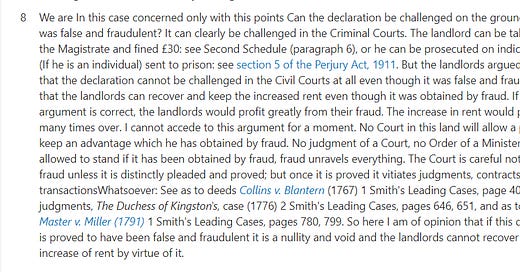Call for Applications: Legal Team for Civil Lawsuit - Alison Wright v Synthetic Identities
"Fraud unravels everything" Lazarus Estates Ltd v Beasley, 1956
Call for Applications: Legal Team for Civil Lawsuit - Alison Wright v Synthetic Identities
Position: Pro Bono Legal Team Members
Case: Alison Wright v Synthetic Identities, including those in Companies House in breach of Section 1082 of the Companies Act 2006
Location: Remote/UK
About the Case: We are seeking qualified legal professionals to join a team to pursue a landmark civil lawsuit against individuals and entities utilizing synthetic identities, including those in Companies House. This case highlights the misuse of synthetic identities to conceal conflicts of interest, potentially involving high-profile figures across various sectors, including politics, finance, and law enforcement.
Role Description: We are looking for solicitors, barristers, and legal researchers with expertise in corporate law, fraud, and public interest litigation. The legal team will develop and execute a strategy to address these breaches and seek justice for the misuse of synthetic identities.
Requirements:
Qualifications: Must be qualified to practice law in the UK.
Experience: Demonstrated experience in corporate law, fraud cases, or public interest litigation.
Commitment: Willingness to work on a pro bono basis, with potential for contingency fee arrangements depending on the outcome.
Interest in Public Interest Law: Strong commitment to public interest and the integrity of the legal system.
Funding and Compensation: While the primary work will be on a pro bono basis, we are exploring avenues for legal aid, contingency fee arrangements, and crowdfunding to cover legal costs. We encourage candidates to discuss possible funding arrangements during the application process.
How to Apply: Interested applicants should submit a CV, a cover letter outlining their interest in the case and relevant experience, and any additional materials that may support their application (e.g., references, previous case work).
Application Deadline: 30 August 2024
Contact Information: Please send applications and inquiries to Alison Wright at alisonwright45@btinternet.com.
This case represents a unique opportunity to challenge systemic issues in the registration of synthetic identities and uphold the principles of transparency and accountability in public and corporate governance.
Judicial Argument: Alison Wright v Synthetic Identities
Overview of the Case:
In this case, it is asserted that multiple synthetic identities have been registered in Companies House, constituting a breach of legal obligations under the Companies Act and the Fraud Act 2006. The use of synthetic identities involves altering or falsifying attributes such as names, dates of birth, or addresses to create multiple identities, thereby concealing true interests and affiliations. This practice undermines the integrity of the system and has significant implications for legal and regulatory compliance, including fraud prevention and the proper conduct of audits.
Legal Context and Precedents:
According to the guidance from the UK Cabinet Office and Government Digital Services, an identity is defined as a combination of attributes belonging to a person. A synthetic identity, therefore, involves manipulating these attributes—whether by creating entirely fictional details or by modifying existing ones. The guidance explicitly warns against the risks posed by such identities, including the potential for fraud, unauthorized access, and other criminal activities.
The Fraud Act 2006, particularly sections 2, 3, and 4, provides the legal framework for addressing these issues:
Section 2: Fraud by False Representation
This section criminalizes the act of making a false representation with the intent to make a gain or cause loss. A false representation occurs when a person dishonestly provides misleading or untrue information, knowing it might be false.Section 3: Fraud by Failing to Disclose Information
This section addresses situations where an individual fails to disclose information they are legally required to, with the intent to gain or cause loss.Section 4: Fraud by Abuse of Position
This section pertains to individuals who abuse a position of trust to gain advantage or cause loss, which is particularly relevant in the context of company directors and officials.
Case References:
The principles established in Lazarus Estates v Beasley (1956) are applicable here, emphasizing that any advantage obtained by fraud is invalidated by law. The dictum "fraud unravels everything" highlights the absolute nature of legal remedies available against fraudulent actions.
Further, in HIH Casualty & General Insurance Ltd v Chase Manhattan Bank (2003), the court affirmed that the duty of utmost good faith requires full disclosure of all relevant facts, and any failure to do so constitutes a breach.
Implications and Call for Investigation:
The fraudulent registration of synthetic identities has broader implications, including potential violations of the Representation of the People Act and breaches of fiduciary duties. The concealment of interests from auditors and during Know Your Client checks poses significant risks, including the facilitation of money laundering, people trafficking, and terrorism financing. The scale of these fraudulent activities necessitates a comprehensive forensic audit to ascertain the extent of the wrongdoing and to identify all parties involved.
Conclusion:
In light of these serious allegations, I call for a thorough investigation into the registration of synthetic identities within Companies House. It is crucial to assess the full impact of these actions, including the review of all decisions and contracts signed under these false identities. The objective is to restore the integrity of the system and ensure that justice is served.
Appellant: Alison Wright
Date: 27 July 2024
Context of quotation “Fraud unravels everything”:
Lazarus Estates Ltd v Beasley [1956] EWCA Civ J0124-1Date24 January 1956 in the Supreme Court of Judicature, Court of Appeal before: Lord Justice Denning, Lord Justice Morris and Lord Justice Parker, Lord Denning’s judgement stated:
No Court in this land will allow a person to keep an advantage which he has obtained by fraud. No judgment of a Court, no Order of a Minister, can be allowed to stand if it has been obtained by fraud, fraud unravels everything. The Court is careful not to find fraud unless it is distinctly pleaded and proved; but once it is proved it vitiates judgments, contracts and all transactions Whatsoever.
Lazarus Estates Ltd v Beasley - Case Law - VLEX 793262385 https://vlex.co.uk/vid/lazarus-estates-ltd-v-793262385



